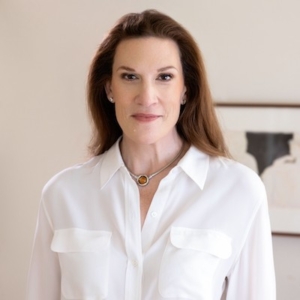Are You Stuck in Perfectionism?
In 2018, I had a panic attack while beginning a book lecture at my local public library. I stood at the lectern and became unable to breathe. I felt nauseous and as if I were about to faint. As it became obvious that I was unable to speak, someone in the audience yelled, “I think we should call 911—she needs an ambulance.” I knew, though, that this was a panic attack. I wasn’t physically ill. My perfectionism had frozen me, and terrified the poor audience.
When I had the chance to unpack things a little, I realized that the pressure to deliver in my hometown was too great. These were people I might even know, and they’d given up an evening of their time to see me, who would surely disappoint them. This was the first solo talk I’d given for my book, and I felt my prepared material wasn’t good enough.
Growing up in the 1980’s, my sister and I were brought to many adult dinner parties, and we were trained at an early age to entertain grownups, while also always deferring to them. By age eight I could sparkle at a table, discussing books and current events; I’d also always help with the dishes. “Isn’t she something,” adults would remark. And I was. I was special, until I became an awkward teenager whose parents’ messy divorce meant no more dinners and instead a lot of shaming for being tall and large. My vain and narcissistic father frankly didn’t want me sitting with him at dinner anymore. I didn’t feel like I was worth very much anymore to my parents, but it didn’t stop me from trying. It led to decades of controlled eating and over exercising in search of a more “acceptable” body, and an immovable feeling that no matter what I achieved, it would never be enough.
Perfectionism is complicated, because it can be very seductive to think of yourself as a perfectionist. The dominant cultural story is that greatness seems to require it. The best in their fields are so often extolled for their “flawless” performances and “exceptional” output, or we marvel over their determination to “accept no less than the best. But perfectionism is not the pursuit of excellence; it’s anxiety. It’s crucial to understand what your constant pursuit of outperformance is costing you.
A meta-analysis that examined data from over 57,000 people found that high levels of perfectionism were correlated with depression, anxiety, eating disorders, deliberate self-harm, and OCD.1 Eating disorders and perfectionism often go hand in hand. We set standards that are impossible, and the stakes feel so high. If only we achieve our goal weight, or eat clean enough, or exercise enough, we think, then we will be worthy and whole. This is something I struggle with, even at age 46.
I’ve been working on sawing off that trailing edge. Through therapy and practice, I’ve consciously changed the persistent negative self-talk that drove my perfectionist behavior. Can you picture a life in which you achieve at the same high levels you do now, but without all the anxiety, stress, and angst that go hand in hand with perfectionism? How about the possibility of achieving even more, and living a more joyful, fulfilling life? Stop and let yourself imagine that possibility. Because without all the anxiety and negative outcomes that come from holding yourself to a standard that’s literally impossible to reach, you might just unlock your creativity and let loose your drive—and your joy—in an entirely new way.
1 https://onlinelibrary.wiley.com/doi/epdf/10.1002/jclp.22435
Morra Aarons-Mele is a podcast host, writer, entrepreneur, and communications executive. She hosts The Anxious Achiever podcast, a top-10 Management podcast and 2020 Webby Awards honoree. She is the author of The Anxious Achiever: Turn Your Biggest Fears into Your Leadership Superpower, to be released by Harvard Business Review Press in April 2023. She was one of ten thought leaders named LinkedIn’s Top Voices in Mental Health for 2022. Passionate about helping people rethink the relationship between their mental health and their success, Morra frequently consults for Fortune 500 companies, startups, and US government agencies.
In addition to her contribution to workplace mental health, Aarons-Mele founded Women Online, the award-winning social impact agency she sold in 2021. She has helped three US presidential candidates and a range of mission-driven organizations create communications, marketing, and fundraising campaigns. Since 2004, Aarons-Mele has covered the campaign trail, the White House, the lactation room, and the office cubicle, and has written for The New York Times, The Wall Street Journal, Fast Company, among other publications. Her first book, Hiding in the Bathroom: How To Get Out There (When You’d Rather Stay Home), was published by Dey Street Books in 2017.





